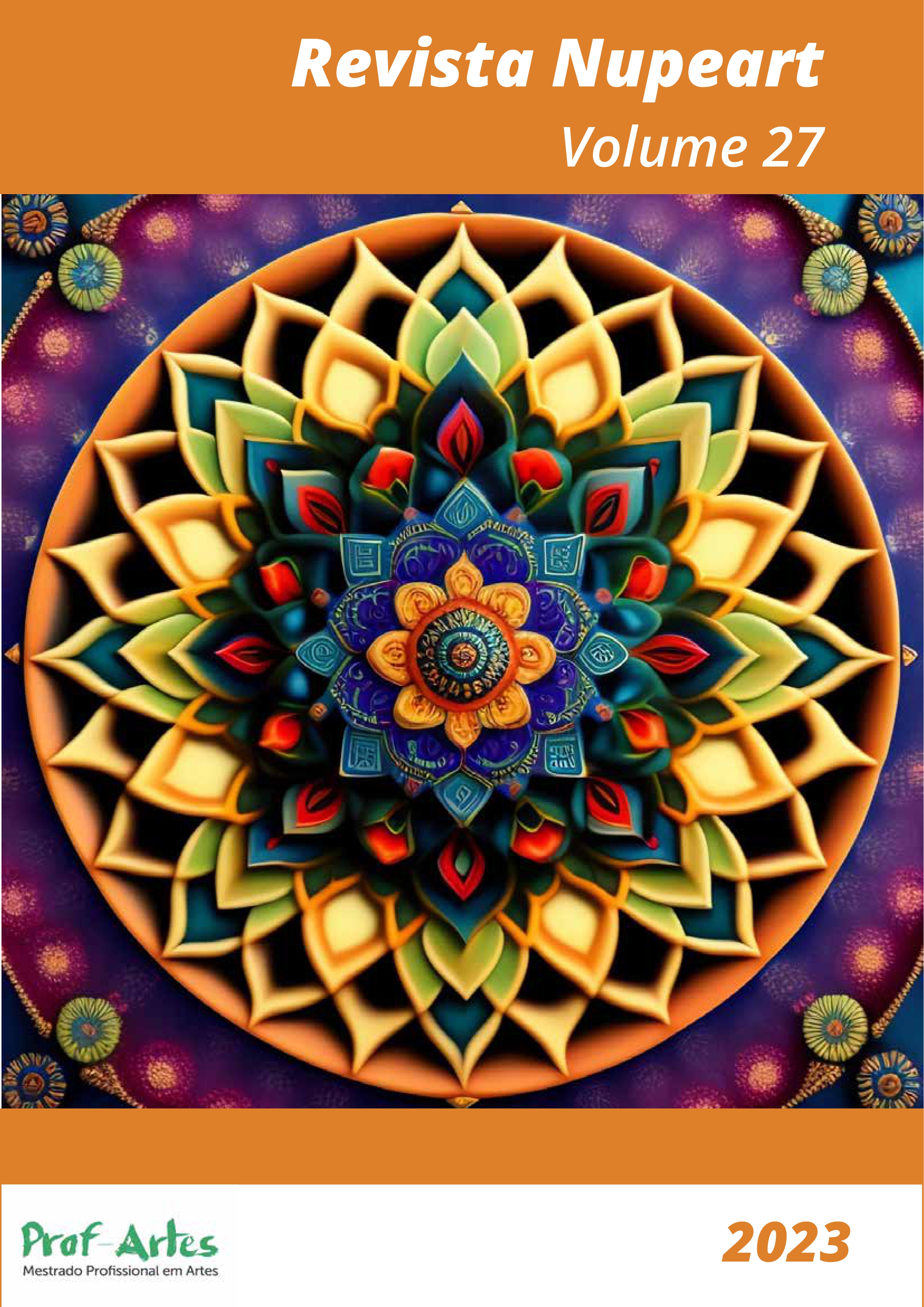Dance and early childhood education: methodological proposal for a decolonial education
DOI:
https://doi.org/10.5965/235809252712023e4445Keywords:
dance, early childhood education, decolonial education, methodology, Kangaroo ProjectAbstract
Early Childhood Education has changed its approach and implementation in recent decades. The childcare concept is gone. It has also been abandoned the idea of it being a prior step to Basic Education, integrating the formal basic curriculum. However, we need to discuss the official documents and the theoretical references, mostly European, as well as to discuss the possibility of implementing them in a decolonial perspective. Therefore, this article intends to analyze the National Common Curricular Base (BNCC) with regard to Early Childhood Education and the National Curriculum Guidelines for Early Childhood Education (RCNEI), as well as the proposed curriculum for the same age group in Europe, more specifically in Italy. Then we will discuss a proposal for the implementation of the BNCC in a decolonial perspective. Although teaching of the Arts is not anticipated in this age group, we recommend that the research be methodologically conducted by artistic means. Therefore, we will bring the experience of the “Kangaroo Project – dancing at school” as a possibility of dialogue between the objectives foreseen in the BNCC and its implementation in another epistemological basis. Learning that starts from personal and bodily research, with the creation of authorial resolutions and, at the same time, in interaction with others and the environment, breaking the current logic of the instituted teaching-learning process.
Downloads
References
ALANEN, L. Gender and Generation – feminism and the child question. In: Childhood matters – social theory, practice and politics. Avebury: European Center of Viena, 1994, pp. 27-42.
ALMEIDA, T. Currículos e agenciamentos do devir: trânsitos ao redor de Deleuze na delimitação da infância a partir de Emílio de Rousseau. Fractal Revista de sicologia, 30, 3, p. 302-309, 2018
AMORIM, K. S. Linguagem, comunicação e significação em bebês. Tese (Livre docência) – Faculdade de Filosofia, Ciências e Letras – USP, 2013.
BAKHTIN, M. A estética da criação verbal. São Paulo: Martins Pontes, 1997.
BRASIL. Ministério da Educação. Base Nacional Comum Curricular. Brasília, 2018.
BRASIL. Ministério da Educação. Diretrizes curriculares nacionais para a educação infantil. Secretaria de Educação Básica. – Brasília: MEC, SEB, 2010.
CORSARO, W. A. Sociologia da infância. 3. ed. Porto Alegre: Artmed, 2011.
DOEDERLEIN, J. O livro dos ressignificados. São Paulo: Paralela, 2017.
DOWBOR, F. Quem educa marca o corpo do outro. São Paulo: Cortez, 2008.
FINCO; BARBOSA; FARIA (orgs). Campos de experiência da escola da infância – contribuições italianas para inventar um currículo de educação infantil brasileiro. ampinas: Edição Leitura Crítica, 2015.
GONSALVES, E. Educação e a Curva Pedagógica. Campinas, SP: Alínea, 2014.
GREINER, C. O corpo – pistas para estudos indisciplinares. São Paulo: Anablume, 2005.
JAMES, A.; PROUT, A. Constructing and reconstructing childhood: contemporary issues in the sociological study of childhood. London and New York: oultledgeFalmer, 1997.
MARQUES, I; BRAZIL, F. Arte em questões. São Paulo: Cortez, 2014.
MATURANA, H.; Varela, F. A Árvore do Conhecimento – as bases biológicas do entendimento humano. Campinas: Workshopsy, 1995.
NOGUEIRA, R. Denegrindo a filosofia: o pensamento como coreografia de conceitos afroperspectivista. Rio de Janeiro: Griot revista de filosofia, 2012.
PIAGET, J. A Linguagem e o Pensamento da Criança. São Paulo: Martins Fontes, 2005.
PROUT, A. Reconsiderando a nova Sociologia da Infância. Cadernos de Pesquisa, v.40, n.141, p.729-750, São Paulo, set./dez. 2010.
QVORTRUP, J. et all. (orgs.). Childhood matters – social theory, practice and politics. Avebury: European Center of Viena, 1994.
RAMOSE, M. A importância vital do “nós”. Revista do Instituto Humanitas Unisinos, v. 352, ano 10, p. 3-9, 2010.
TEBET, G. Isto não é uma criança! – teorias e métodos para o estudo de bebês nas distintas abordagens da Sociologia da Infância de língua inglesa. Programa de Pós-graduação em Educação da Universidade Federal de São Carlos. Tese (Doutorado em Educação). São Carlos, 2013.
VYGOTSKY, L. Pensamento e Linguagem. Lisboa: Relógio D´água, 2008.
WALLON, H. As origens do caráter da criança. São Paulo: Nova Alexandria, 1995.
Downloads
Published
How to Cite
Issue
Section
License
Copyright (c) 2023 Revista NUPEART

This work is licensed under a Creative Commons Attribution 4.0 International License.
Os autores cedem os direitos sobre suas obras a Revista NUPEART para a publicação dos originais baixo uma licença Creative Commons Atribuição 4.0 Internacional.
Esta revista, seguindo as recomendações do movimento de Acesso Aberto, proporciona acesso público a todo seu conteúdo, seguindo o princípio de que tornar gratuito o acesso a pesquisas gera um maior intercâmbio global de conhecimento.

